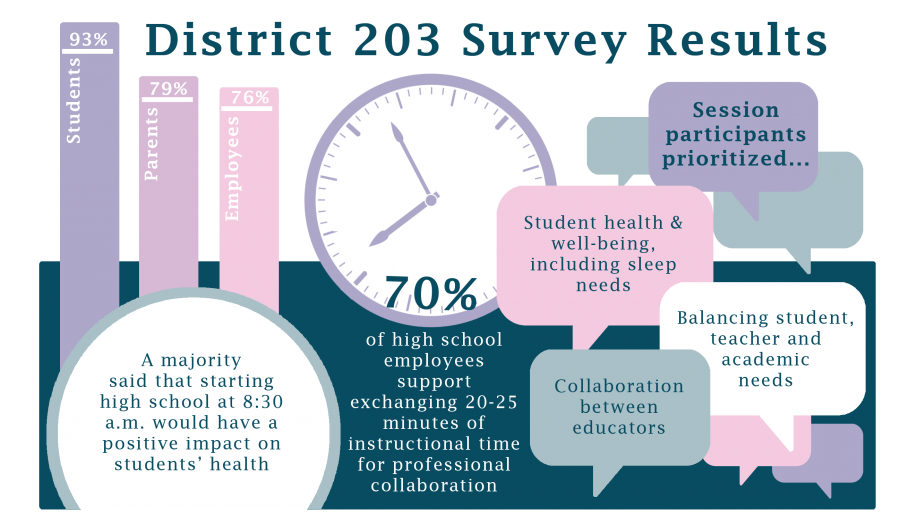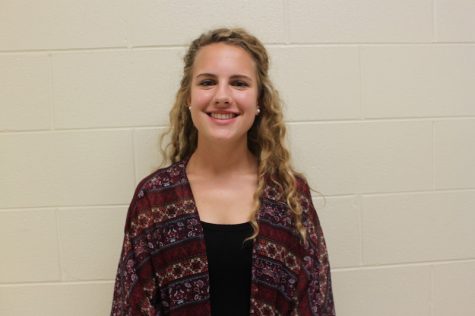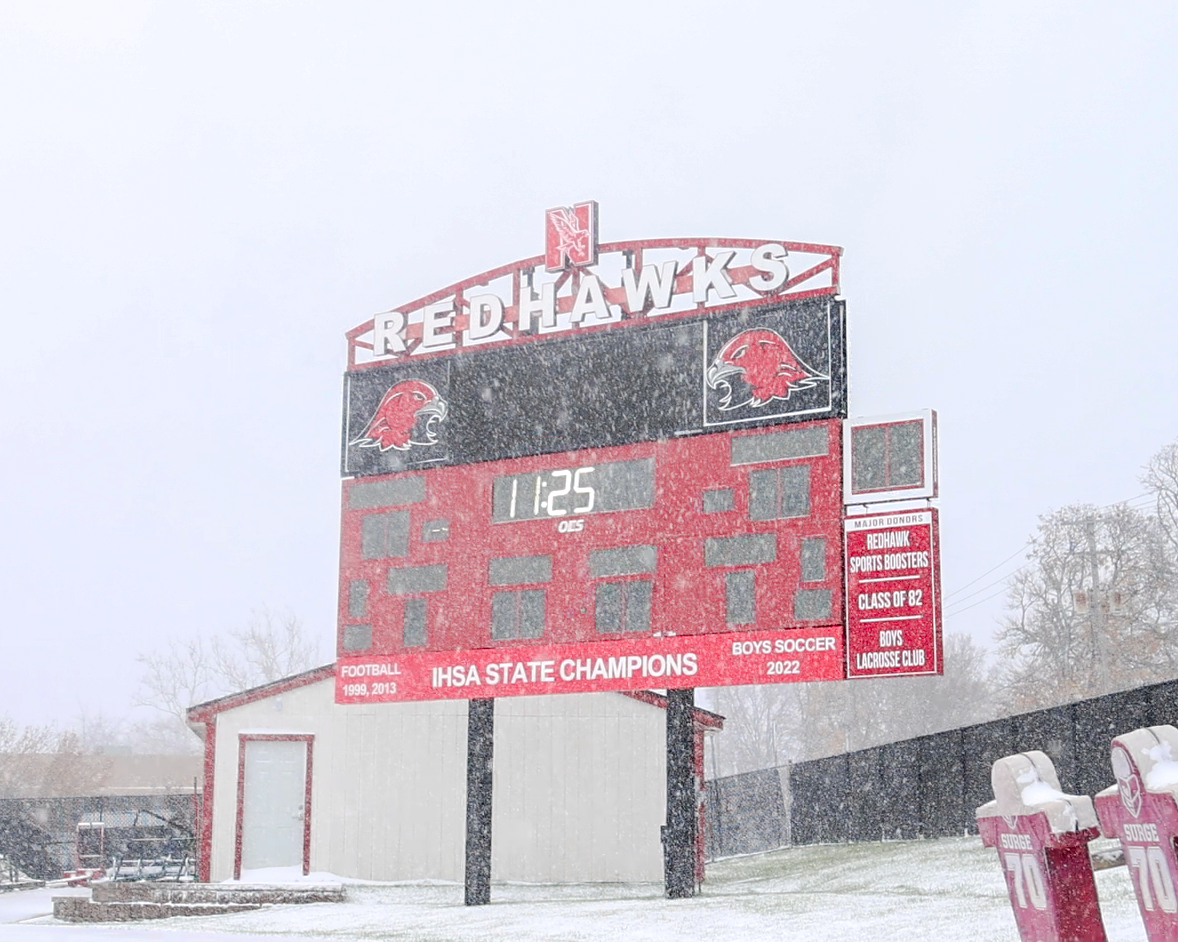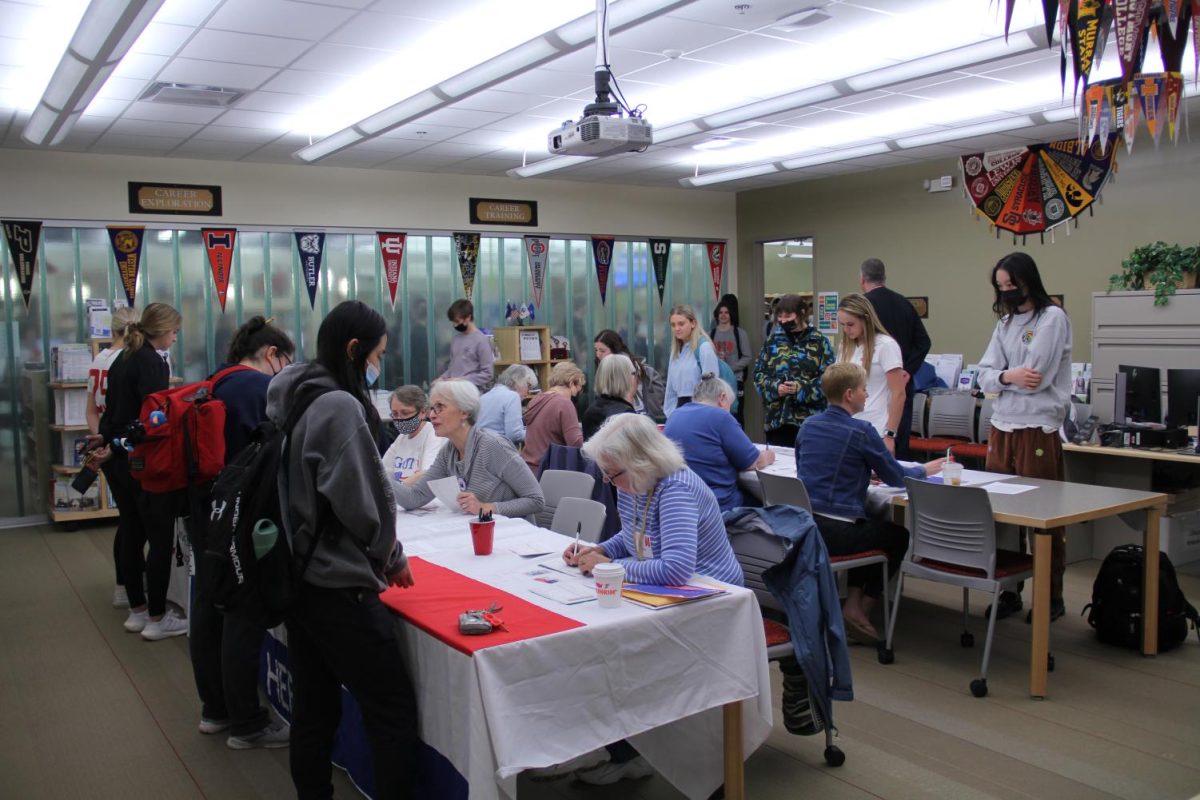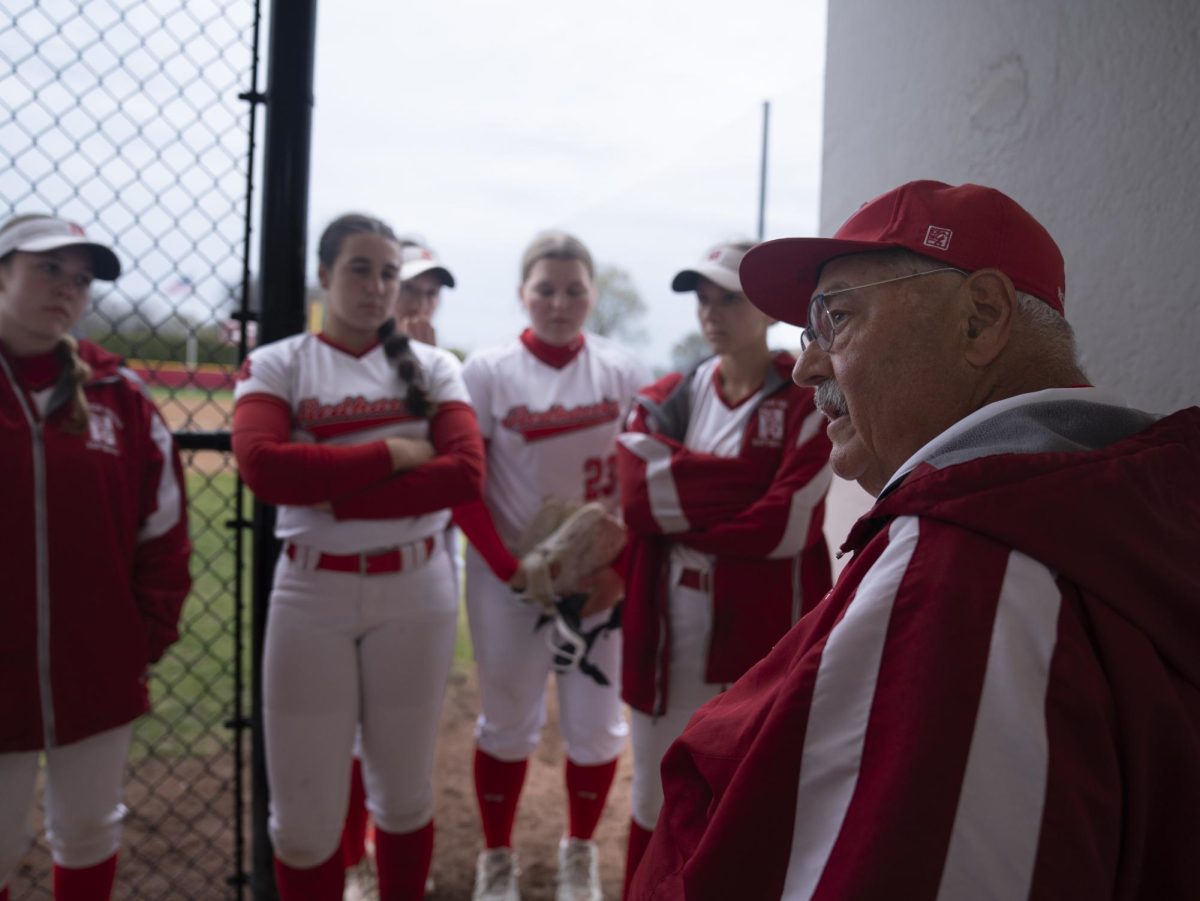Weekly late arrivals set for next year
March 27, 2017
The school board approved a plan on March 6 to institute weekly late arrival Wednesdays in an effort to increase the amount of time allotted for teachers to collaborate. This decision comes at the end of an eight-year push by principal Bill Wiesbrook to include more scheduled time per month for teachers to meet over curriculum, and also takes into account the results of the survey sent out last fall concerning start time preferences.
“It will provide a more consistent experience for students, [teachers] can exchange good teaching strategies and I know that it will lead to better learning for all of our students,” said Wiesbrook, explaining his goal in pushing for more collaboration time.
Currently, teachers are only given one hour per month to collaborate with colleagues who teach the same subject, which can lead to drastically different approaches to what should be a uniform experience across each class. The goal of weekly collaborations, called Professional Learning Communities (PLC), is for teachers to really look at what approaches work in their subjects so that they can utilize the best tactics to help their students succeed.
“I think that instruction is going to change,” said Carrie McFadden, assistant principal for operations. “I also think that, between the team that’s working on a course, they can come up with … different ways to support kids. If we identify that kids didn’t do well on a topic, we can also help the student do better on a topic. Or maybe a different teacher’s kids did really well on a topic and they can ask ‘what did you do that your kids did so well,’ and all kids can get that experience.”
Should a teacher instruct more than one class involved in a PLC, they will choose one group to collaborate with.
If they are the only one who teaches their subject, in cases such as Latin and German, they will collaborate either with teachers who teach similar subjects or with those who teach the same subject at Naperville North.
McFadden serves on the committee tasked with finding the most efficient way to distribute the school day. According to her, the committee has taken into account the fact that students, teachers and parents rated student health as their most important priority. Students health would best be served by a permanent later start time, preferably after 8:30 a.m., as recommended by the American Academy of Pediatrics. However, there were too many complex pieces, such as junior highs, elementary schools and transportation, to consider implementing a later start time every day next year.
“This plan right now is really more about getting that collaboration time for the teachers, but if it gives kids a little extra sleep one day a week I think that’s a good thing too,” McFadden said.
Wiesbrook echoed McFadden’s sentiment.
“We’ve spent two years learning how to implement weekly collaboration time for our teachers,” Wiesbrook said. “I’m excited the most about teachers collaborating, but a side benefit is that [students] will get to, one day a week, sleep later. And that’s nice, it’s kind of a win-win.”
All together, students, faculty and parents support more late arrival days. According to the results of the survey, 70 percent of teachers support adding more late arrivals, as do 61 percent of parents and 91 percent of students.
“My teachers have already told me that it’s good for them because right now there’s a lot of miscommunication,” said sophomore Maddie Albright. “I’ll get to go out to breakfast more, and I’ll be happier.”



